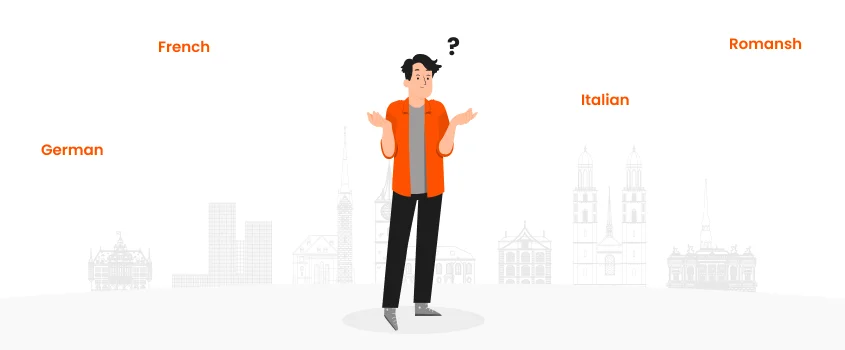2025 Offer Request a Quote Today and Grab a $50 Coupon for Free!
Croatian is the Serbo-Croatian language spoken by Croats primarily in Herzegovina, Bosnia, and Croatia. Moreover, it is also spoken in the Serbian province of Vojvodina and other neighboring countries.
It is the official language of Croatia. 95 percent of Croatia are native Croatian speakers. Many people consider it the most difficult language to learn. Let us see whether this assumption is correct or not. But BEFORE reaching any conclusion, you need to understand why you should go for learning the Croatian language.
Everyone has its objective behind learning any new language. You must explore the language that you want to learn.
Speaking of Croatian, there are several reasons why you should go for this amazing and complex language.
Few of the reasons can be:
If you have a strong reason behind learning the Croatian language then you will learn the language quickly and it will keep you motivated and persistent throughout your language learning venture.
The language depicts the culture of any society so if you want to know Croatian culture then you need to meet the locals of Croatia. To mingle with locals, it is necessary to learn the Croatian language. Croats are very patriotic people and are proud of their rich heritage. They like people who try to communicate with them and they love to share their rich heritage with them. History shows that Croats came to the Balkans in the early 7th century. They are the nomadic people who live in small villages but they soon became an independent state. The king of Croatia is called King Tomislav who became king in 925 AD.
The rich history of Croatia is mentioned in different historic books. Read them and you will come to know about different wars and battles, brave fighters, political chaos, and their struggle for independence. If you want to learn about the Croatian culture in-depth, learning their language is the key.
Croatia is from a group of other Slavic languages. If you are proficient in the Croatian language then you will be able to understand Montenegrin, Bosnian, and Serbian language. Although they are different languages, good Croatian speaking skills will help you in understanding these languages as Croatian and Slavic languages have quite similar grammar and vocabulary.
The Croatian language uses a Latin script whereas the Serbian language uses Cyrillic and Bosnian language uses both scripts. If you are an English speaker then you should start with the Croatian language so that you need not learn more alphabets.
If you are going to visit Croatia and plan to stay for a longer span, then you need to learn Croatian. It will make your journey memorable. No doubt many Croats speak English well but to indulge in bureaucracy you need to have proficiency in the Croatian language. To deal with government officials in Croatia and to get medical assistance you are required to know their native language. You bring a Croatian translator with you but this option does not look feasible because you cannot keep a translator with you all the time. Croatia is the tourist destination and to run tourism, many people speak the English language and when you are away from these tourist spots you will not find anyone speaking the English language.
Many people assume that Croatian is the difficult language to learn but this assumption is not valid for all. If you already know a language that is like the Croatian language, you will not find it hard to learn. The assumption that Croatian is difficult to learn is somewhat true but it is not impossible to get command over this language.
As per the foreign service institute, Croatian is placed at Category 4 in terms of learning. It takes around 1100 hours to learn. Languages that lie under category 1 are associated with English such as French, Spanish, Portuguese, and Italian and a person may require around 600 hours to learn any of them. Thus, Croatian will take double time as compared to these languages.
The Croatian language is very complex. Let us have a look at the factors that make it complicated to understand.
Just like English, Croatian follows the word order like subject-verb- object. To make work order flexible you need to follow some rules.
For non-flexible word order, you need to focus on the interrogative part. The interrogative part plays great importance in sentence formation and it needs to be put in second place in the sentence.
Croatian is easy to read as compared to English. Although Croatian is a phonetic language and it makes it difficult to learn except you know the words you are reading. The difficulty occurs in reading while defining the long vowel length and to decide where to put stress in a word. Four kinds of Croatian pitch accent are:
The Accent of Croatian is not standard which makes it difficult to pronounce unless you know the words.
So are you ready to learn such an amazing language? Whether you want to travel to Croatia or aspire to start your business there, Mars Translation is here for you. We are providing precise Croatian Translation Services to cater to all your translation needs.

The number of worldwide Internet users already exceeded 3 billion people in January 2015, according to Satista dot com. And
Read more
A marriage certificate is a legal document that joins two people who want to live with each other, for the
Read more
A death certificate is a very essential document issued by a doctor, which certifies that the person is deceased. This
Read more
Romania is officially known as the Republic of Romania. It is located at the junction of Central-Eastern and South-Eastern Europe.
Read more
Switzerland is a landlocked country with a very interesting history. The culture and languages spoken in Switzerland are highly influenced
Read more
Many people really do not know what divorce is exactly. Divorce is the legal process of separating couples who have
Read more
If you have planned to drive for the first time, you will have to start with a learner’s permit. There
Read more
Bill of exchange is a way to communicate with others for resolving issues legally. It is a systematic way of
Read more
Making a will gives you an opportunity to declare the names of one or more persons; you want to manage
Read more

